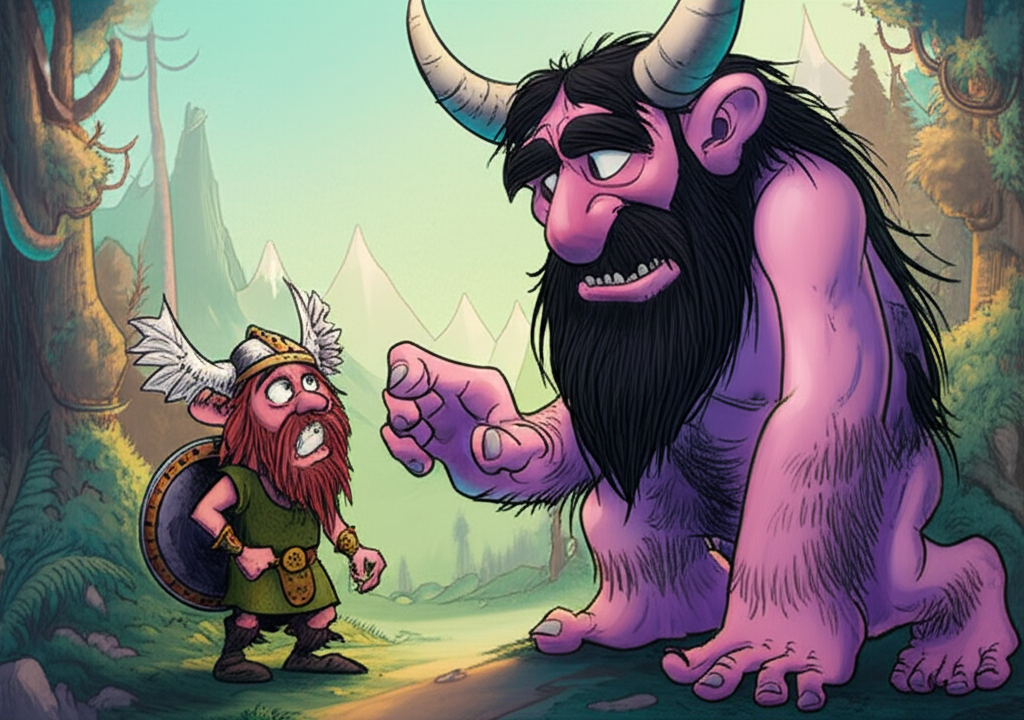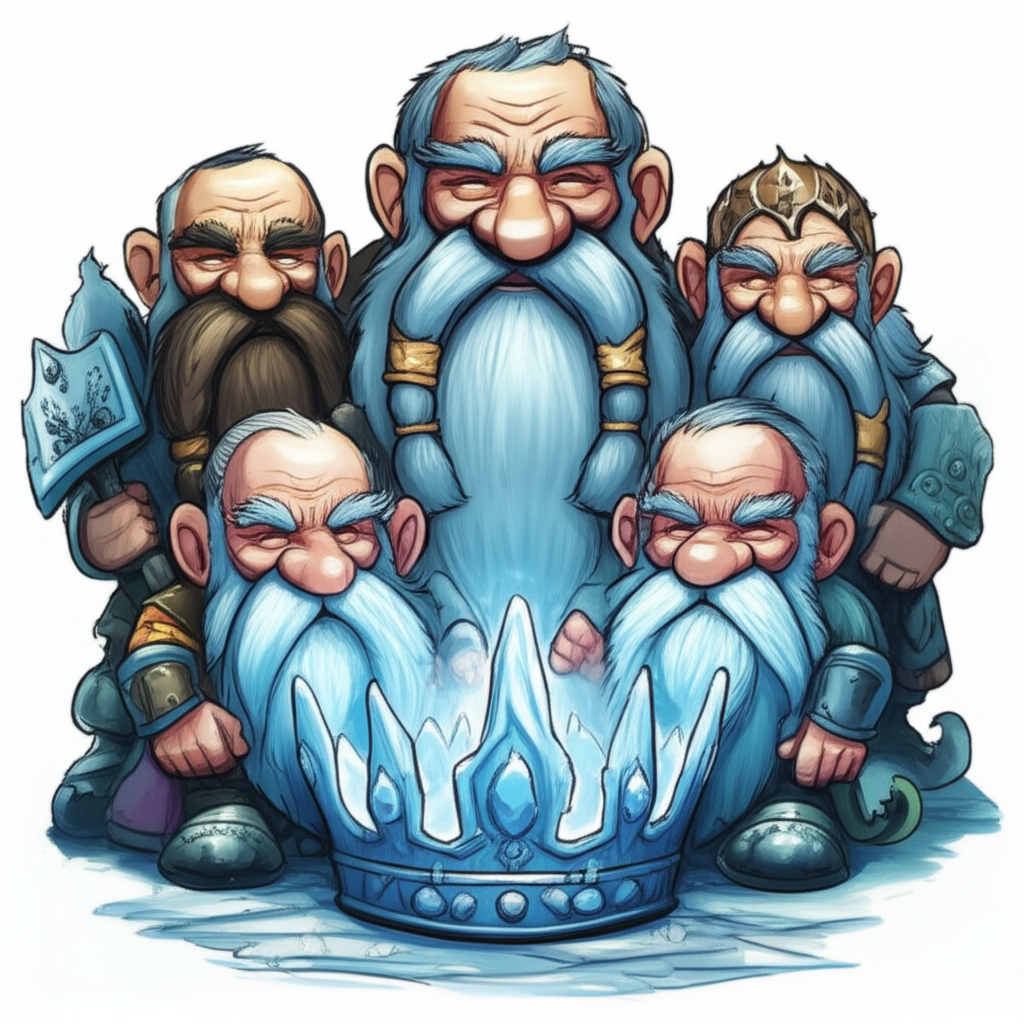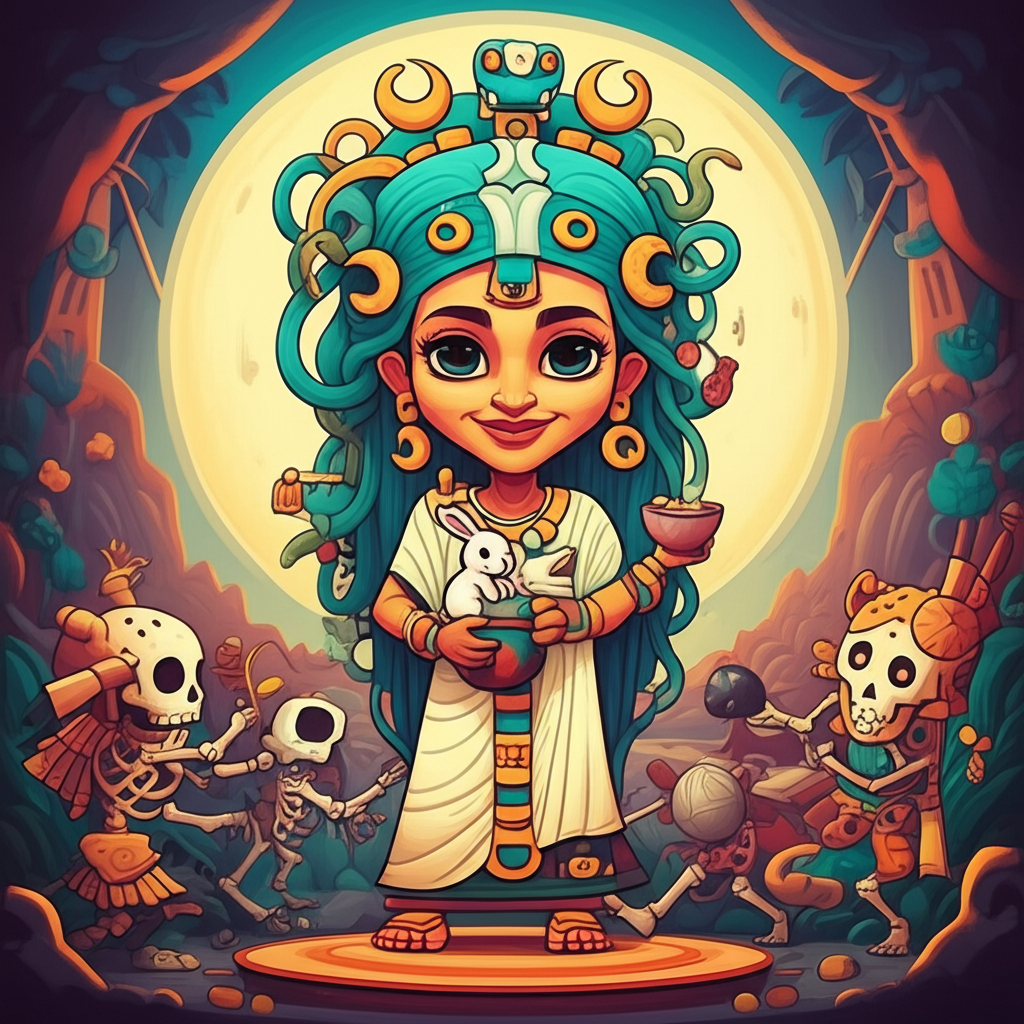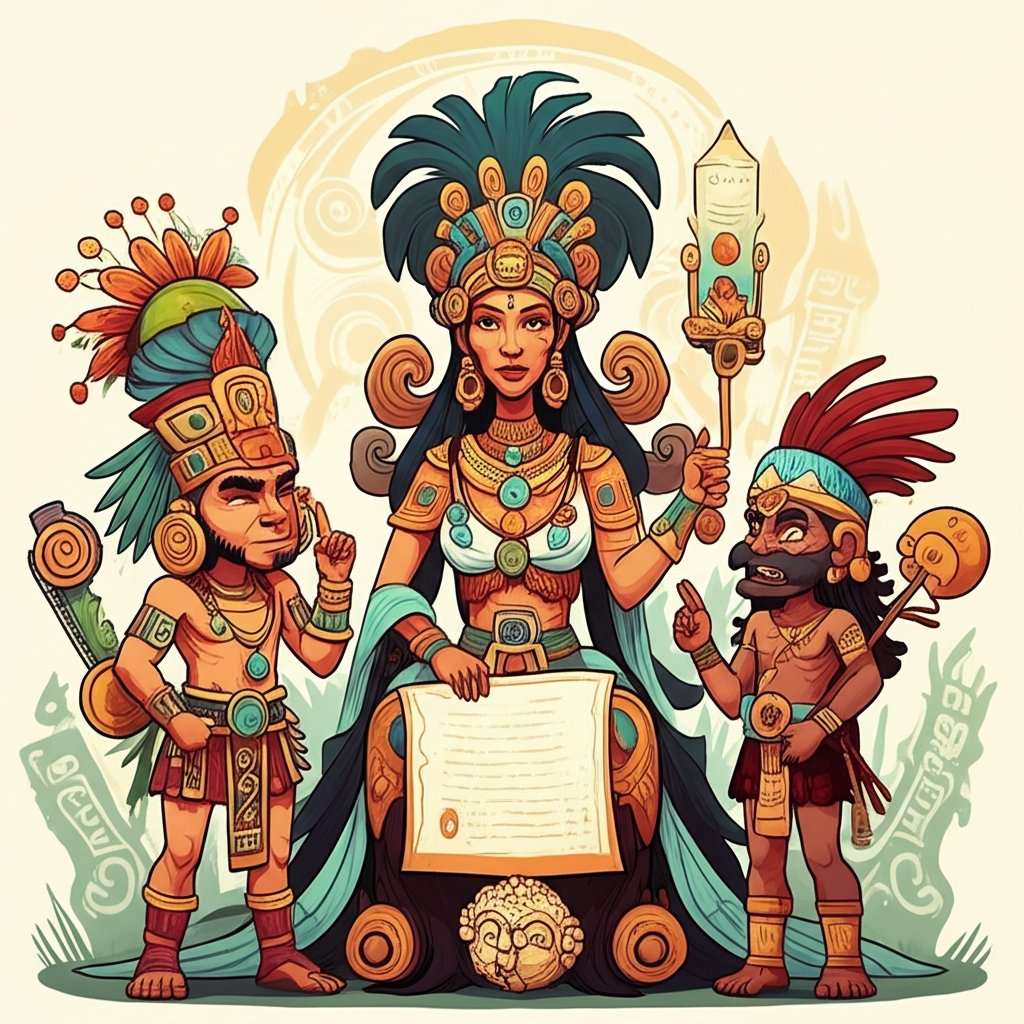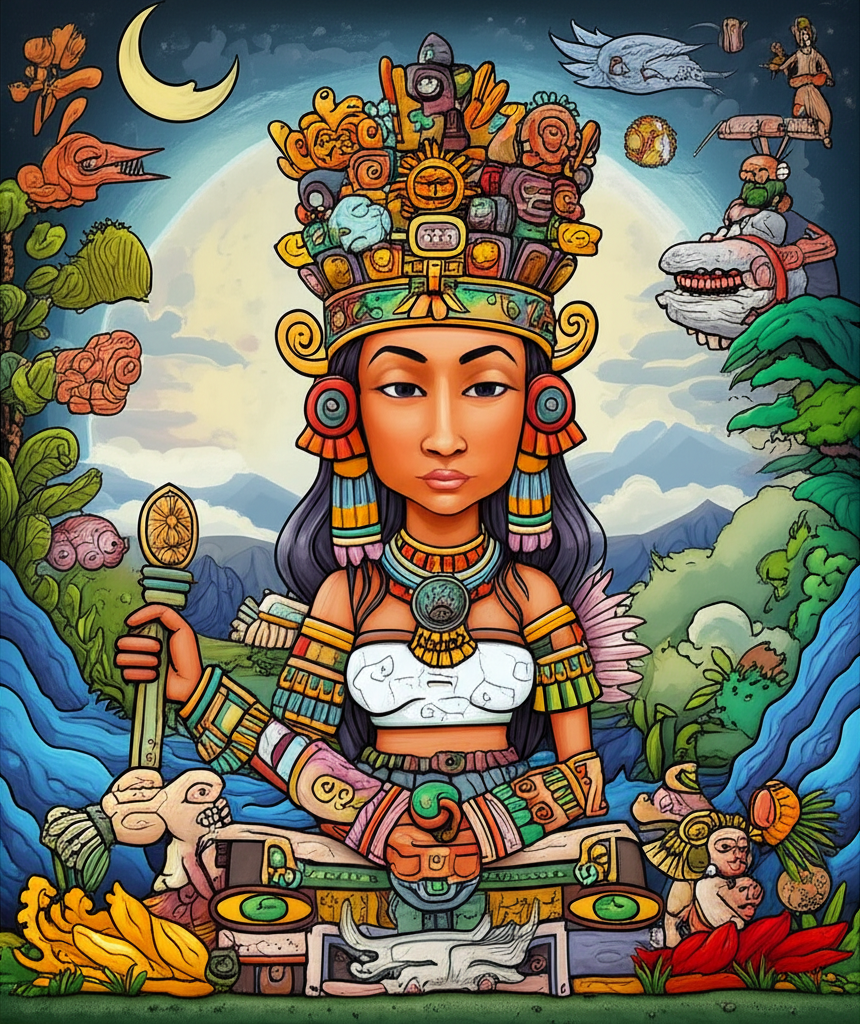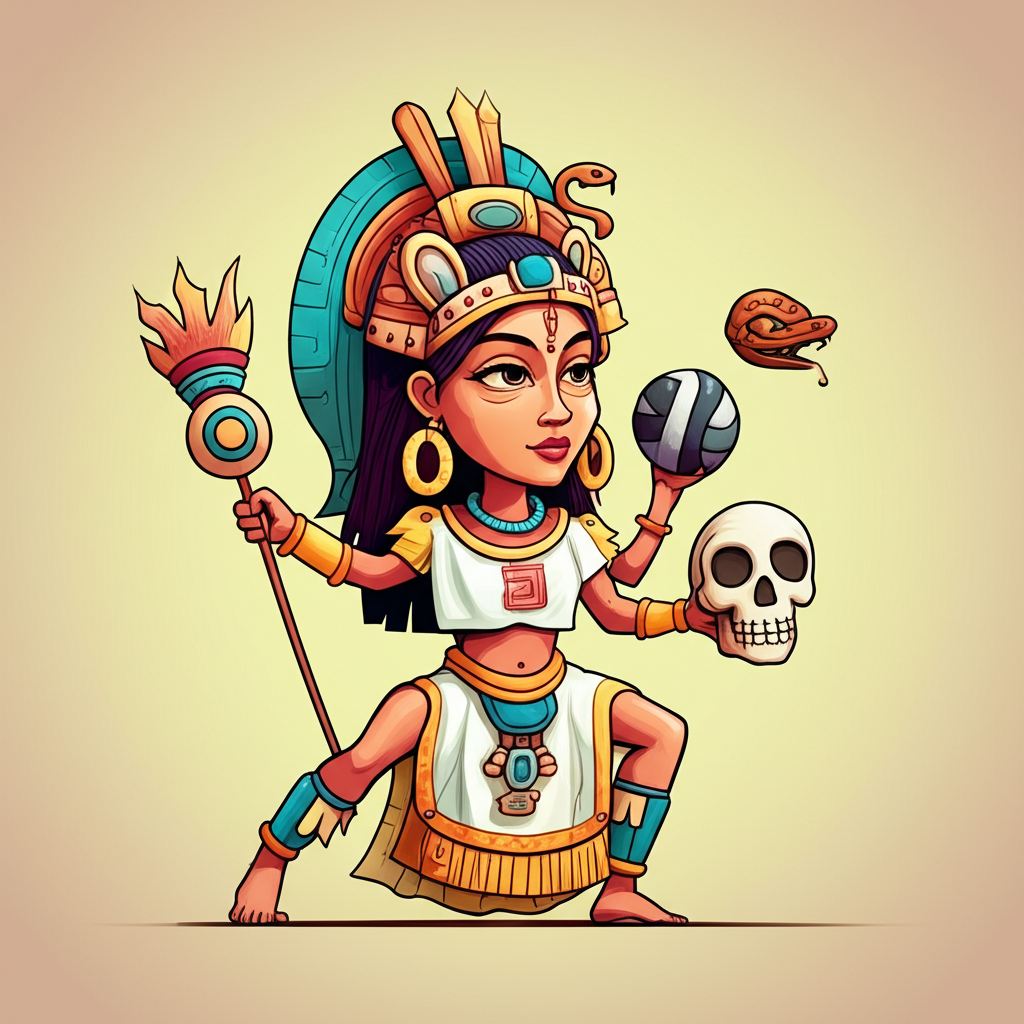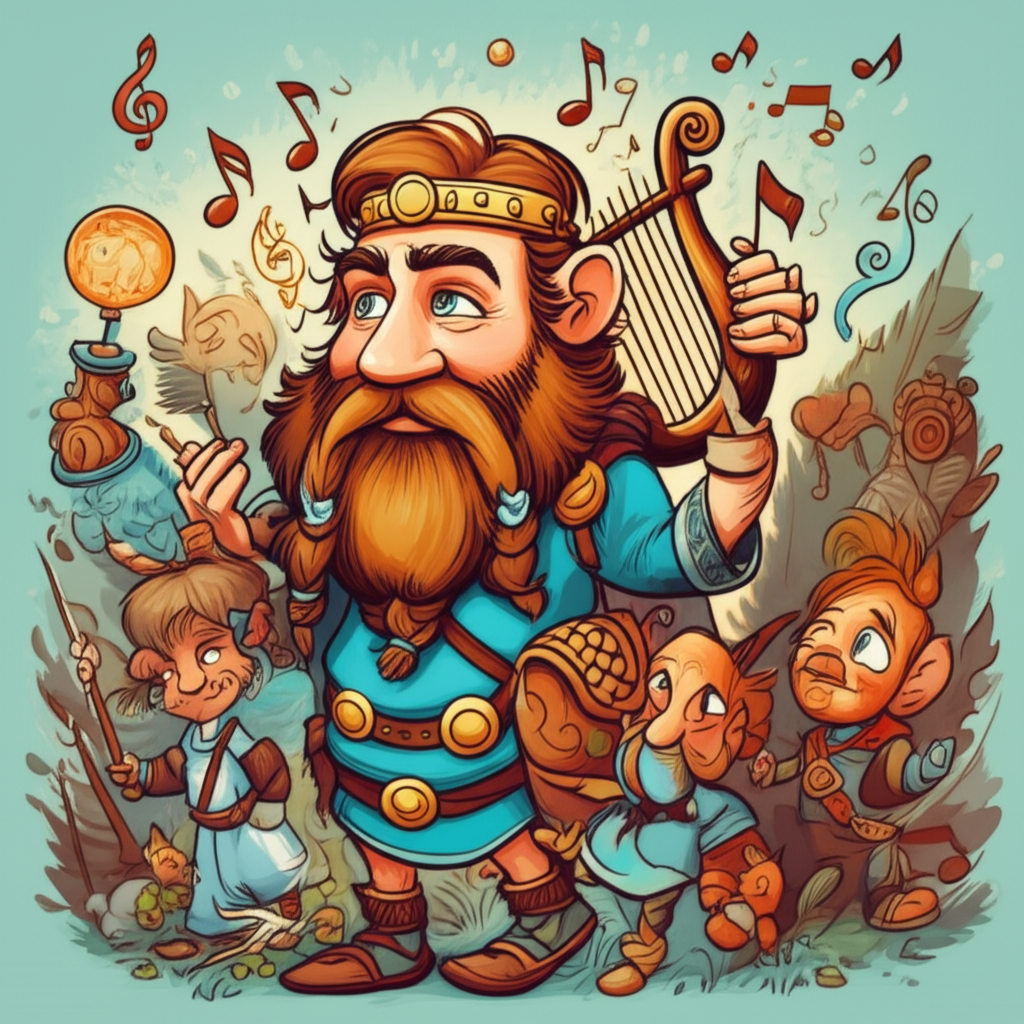
Introduction:
The tale of Bragi and the Aesir-Vanir War originates from the rich tapestry of Norse mythology, the traditional beliefs and stories of the people inhabiting Scandinavia, particularly Iceland, Norway, and Sweden, during the Viking Age and preceding centuries. This narrative, passed down through generations via oral tradition and later preserved in texts like the Eddas, provides a glimpse into the worldview, values, and anxieties of the Norse people. It is crucial to understand that this is a story, a product of human imagination, and not a historical account or a divinely inspired truth.
Origins and Cultural Background:
The Norse myths flourished in a society deeply intertwined with the natural world. The Scandinavian landscape, with its harsh winters, towering mountains, and unpredictable seas, profoundly influenced the Norse worldview. They believed in a world populated by gods, goddesses, giants, dwarves, and elves, all interacting within a complex cosmic framework. The Vikings, known for their seafaring prowess and warrior culture, saw the world as a place of constant struggle and conflict, a struggle reflected in their myths. The Aesir, a tribe of warrior gods residing in Asgard, represented order, law, and civilization. In contrast, the Vanir, gods of fertility, magic, and prosperity, inhabited Vanaheim and represented a different, perhaps more primal, form of power. The story of the Aesir-Vanir War reflects a potential struggle between these contrasting forces and values within Norse society itself. They saw fate as a powerful force, and believed heroes were judged by their courage and honor in facing it.
Character Description: Bragi, the Skald of Asgard
Bragi, son of Odin and the giantess Gunnlod, is the Norse god of poetry, music, and eloquence. He is often depicted as an old man with a long, flowing beard, holding a harp or lyre. Unlike Thor’s brute strength or Odin’s cunning wisdom, Bragi’s power lies in his words. He is the skald of Asgard, the official poet and storyteller of the gods, responsible for preserving their history and celebrating their deeds in verse.
Symbolically, Bragi represents the power of language to shape understanding, to preserve memory, and to inspire action. His role as a poet underscores the importance of oral tradition and the power of storytelling in Norse culture. His association with music highlights the emotional and aesthetic power of art. He is not presented as a being of divine power to be worshipped, but as an embodiment of artistic skill and the significance of cultural preservation.
Main Story: The Aesir-Vanir War and Bragi’s Role
The story begins long ago, before the established order of Asgard was fully secure. The Aesir and the Vanir, two powerful tribes of gods, lived separate lives, each possessing unique strengths and values. The Aesir, led by Odin, prized strength, strategy, and the art of war. The Vanir, ruled by Njord and his children Freyr and Freyja, were masters of magic, prophecy, and the bounty of the earth.
Discontent brewed between the two groups. The Aesir saw the Vanir’s magic as unsettling and unpredictable, while the Vanir viewed the Aesir’s warlike nature as destructive and wasteful. The conflict began, according to some accounts, with the Aesir’s mistreatment of Gullveig, a Vanir woman known for her knowledge of gold and magic. The Aesir, believing her power threatened their dominion, attempted to kill her, burning her three times, but she was reborn each time.
This act ignited a fierce war. The Aesir and the Vanir clashed in epic battles, shaking the foundations of the nine realms. Both sides suffered heavy losses, and the war dragged on for a long and devastating period. Neither side could gain a decisive advantage.
During the war, Bragi, as the skald of Asgard, played a crucial, though often overlooked, role. He was not a warrior like Thor or Tyr, but his words were his weapons. He crafted inspiring poems and songs that rallied the Aesir, reminding them of their valor and their commitment to order. He also composed scathing verses that mocked the Vanir, attempting to demoralize them and weaken their resolve.
However, Bragi also witnessed the futility and destruction of the war. He saw the suffering it inflicted on both sides and began to question the endless cycle of violence. He understood that the conflict was not simply a battle for dominance, but a clash of different worldviews.
Eventually, both the Aesir and the Vanir realized the war was leading to mutual destruction. They agreed to a truce and decided to exchange hostages to ensure peace. From the Vanir came Njord, Freyr, and Freyja, who joined the Aesir in Asgard. From the Aesir came Hoenir and Mimir, who went to Vanaheim.
The exchange was not without its problems. Hoenir, a handsome but indecisive Aesir, proved to be a poor leader in Vanaheim. He relied heavily on Mimir’s wisdom, and when the Vanir realized this, they were angered. They beheaded Mimir and sent his head back to Odin.
Despite this setback, the truce held. The Aesir and the Vanir learned to coexist, incorporating each other’s strengths and values. The arrival of Njord, Freyr, and Freyja enriched Asgard with their magic and knowledge of the earth, while the Aesir’s influence brought a sense of order and discipline to Vanaheim.
Bragi, the skald, played a vital role in solidifying the peace. He composed poems that celebrated the union of the Aesir and the Vanir, emphasizing the importance of understanding, cooperation, and mutual respect. He wove together the stories of both tribes, creating a shared narrative that fostered unity and prevented the recurrence of war.
Symbolism and Meaning:
The Aesir-Vanir War is often interpreted as a symbolic representation of the challenges inherent in integrating different cultures and belief systems. The conflict highlights the potential for misunderstanding and hostility when different values clash. The truce and subsequent exchange of hostages represent the possibility of overcoming these challenges through communication, compromise, and mutual understanding. Bragi, as the god of poetry and storytelling, embodies the power of language and art to bridge divides, foster empathy, and promote peace. The story suggests that true strength lies not only in physical power but also in the ability to understand and appreciate different perspectives.
Modern Perspective:
The story of Bragi and the Aesir-Vanir War continues to resonate in modern times. It appears in various forms of literature, movies, and video games, often as a backdrop for tales of fantasy and adventure. In cultural studies, it is examined as a window into the worldview and values of the ancient Norse people, providing insights into their understanding of conflict, cooperation, and the importance of cultural exchange. The characters and themes of the myth have been adapted and reinterpreted to explore contemporary issues of cultural identity, social justice, and the search for peace.
Conclusion:
The tale of Bragi and the Aesir-Vanir War is a compelling story from the rich tradition of Norse mythology. It is a product of human imagination, reflecting the values, anxieties, and aspirations of the ancient Norse people. It is important to remember that this is a cultural story, not a religious belief.
As Muslims, we believe that only Allah is the true Creator and Sustainer of the universe. He is the source of all wisdom and knowledge. While we can appreciate and learn from the stories and traditions of other cultures, we must always maintain our faith in the oneness of Allah.
The story of Bragi and the Aesir-Vanir War serves as a reminder of the power of storytelling, the importance of cultural heritage, and the enduring human capacity for imagination. It invites us to reflect on the challenges of conflict and the possibilities of peace, and to appreciate the role of art and language in shaping our understanding of the world.
